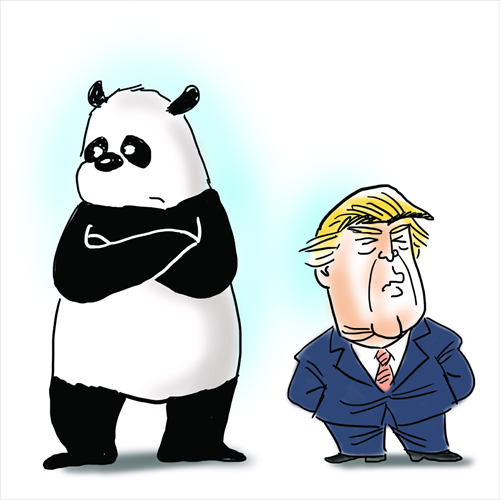Candidates will embrace pragmatism over populism

Illustration: Shen Lan /GT
After winning heavily in Florida, knocking Marco Rubio out of the race in the Republican presidential primaries on Tuesday, Donald Trump predicted that "we're going to win, win, win."
Unlike six months ago, when most Americans considered Trump a joke, he has now almost secured the Republican nomination.
A very significant cause is that Trump has been precisely focusing on the public resentment with the US political establishment, the sluggish economy and the unfavorable social environment. The nation's middle class is shrinking, while the rich are getting richer. Hence, increasing anger and disaffection in US society with the country's political establishment are mushrooming. And the growing gap between the US elite and ordinary people has been reflected through the presidential campaign - Republican voters have started to support a candidate who the elite believe is totally unqualified.
Many of Trump's remarks have made US politicians panic. But in the meantime, when he was blurting out ordinary people's anxiety, the public has found a silver lining in him in making a real change and solving the current social problems.
Unlike other politicians who are stiff and inflexible over political doctrines or political correctness, Trump is planning and adjusting his policies to balance public sentiment and social reality.
Therefore, when it comes to the nation's future China policy if Trump is to be elected, he will be most likely to choose a pragmatic approach. Unlike traditional idealistic politicians who tend to place ideological values, such as democracy and human rights, as the priority in their diplomacy, Trump has more realistic interests in mind.
As a businessman, he understands the importance of making profit through cooperation. Given that, in spite of a few analysts' argument that the China-US relationship will face a huge downward pressure, he might create a surprise in his China policy, taking a stance to boost bilateral ties regardless of other politicians' concerns, just as he astonished us during the presidential campaign.
However, Trump's accusations against many countries including China during his campaign cannot be ignored. While we start to sense that his words have articulated the populist backlash against liberalism, and realize that it is the rise of populism that has carried him toward the nomination, we should note that his words and opinions might trigger long-term puzzles in the days to come.
Yet in the end, all his exaggeration and bluster are only aimed at winning the race. Under the atmosphere of elections, it is not surprising for candidates to fan the flames of the US public.
But once the race comes to a close, both candidates and the public will need to go back to a levelheaded and objective mind-set. By then, whoever assumes the office will need to make, adjust, and implement the US policy on the basis of reality.
In light of this, despite Trump's proposals such as building a wall along the US-Mexican border, banning all Muslims from immigrating to the country, and despite Americans' grievance over shouldering too many international obligations and responsibilities due to the decisions made by US policymakers, the nation, which is built on pluralism, will keep its gates open.
The complicated checks and balances in US politics and the growing social split will hamper many of Trump's promises in reality.
Pragmatism will eventually get the best of populism, and will be maintained in the US policy.
The author is a professor with the Institute of International Relations at China Foreign Affairs University and Fulbright Visiting Scholar at SAIS of Johns Hopkins University. opinion@globaltimes.com.cn